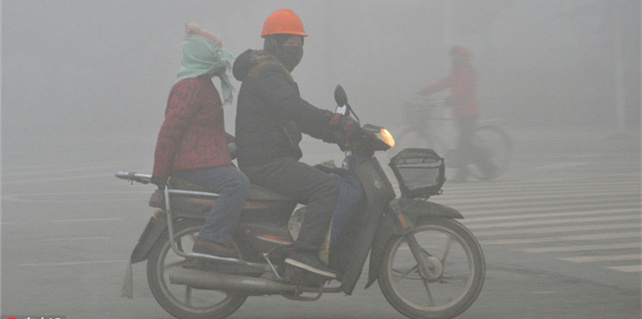ZTE's US chief sees economic strength
With Donald Trump poised to become president later this month, the head of ZTE Corp's US business is optimistic about the US economy and his company's ability to grow in the mobile phone market.
"We have confidence in the US system. The country and the people made a choice, and at the end of the day, it's about people," Lixin Cheng, chairman and CEO of ZTE USA Inc said in an interview in New York on Monday night. "The key is the consumer, and our products are well received by consumers in the US."
Despite occasional Trump rhetoric on China and the US, Cheng said ZTE intends to increase its relationship with US partners and anticipates 20 percent growth annually over the next four years.
"In the last four years, we have purchased about $25 billion in goods and licensed technology from US companies, which has generated a lot of jobs in the US," he said.

ZTE, a Chinese multinational telecommunications equipment and systems company based in Shenzhen, in South China's Guangdong province, brought its businesses to the US in 1998. In 2015, ZTE was fourth in US smartphone market share, behind Apple, Samsung Electronics and its Korean rival LG, according to IDC and Counterpoint Research.
While ZTE's mainland rivals like Huawei and Xiaomi are expanding into emerging markets such as Brazil and India, ZTE maintains its focus on the US market. Cheng said ZTE continues to expand its relationship with carriers in the US market.
Cheng said 2016 was a good year for the company and its flagship smartphone the Axon. "Our market share is about 20 percent in the no-contract space and in overall (phones with an) Android (operating system) we are number three," he said.
Last summer, ZTE introduced its newest smartphone, the 6-inch Zmax Pro, in the US; it features a 13-megapixel camera, a fingerprint sensor and sells for $99.
Last March, the US Commerce Department placed restrictions on ZTE and three affiliated enterprises for allegedly violating American export controls on Iran. The move required ZTE's suppliers to apply for an export license before shipping any American-made equipment or parts to ZTE.
The sanctions could have hindered the company's ability to procure US components and software. However, two weeks later, the US granted ZTE a temporary reprieve.
"They (sanctions) have been suspended until the end of February (2017)," Cheng said. "We are committed to working with the US government to find a permanent solution as soon as possible. We are doing a lot of compliance improvement."
paulwelitzkin@chinadailyusa.com









